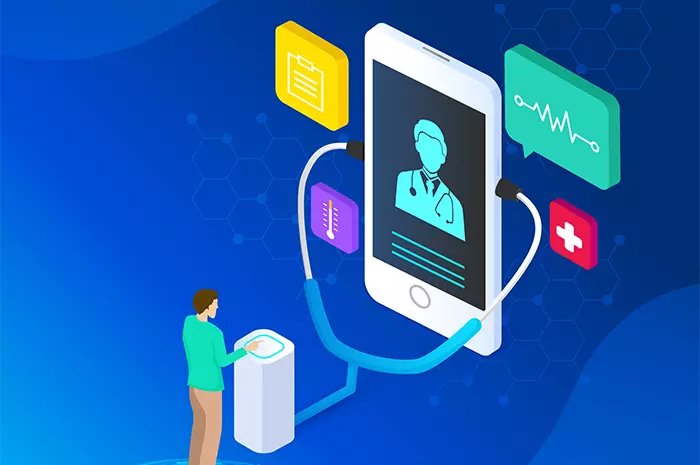
The healthcare app development sector is continuously rising. It helps users efficiently manage their fitness goals, doctor visits, medical issues, and even appointments with their specialized health experts. With the advancement in artificial intelligence and telemedicine, its impact on the health tech sector is expected to be more significant.
So, What Exactly is Healthcare App Development?
Healthcare app development refers to building smartphone applications that assist users in maintaining overall health and well-being. Such applications enable people with medical complaints or assist those who want to improve their health by tracking their daily activities. food consumption and calories. Healthcare app development benefits patients as well as healthcare providers.
This means patients can improve their health while healthcare providers such as doctors, medical staff, and nurses use health tech apps and enhance their operations. Such healthcare application development services allow users to access tools such as telemedicine, and practice management software, medical billing and even medical coding.
What are the Types of Healthcare App Development?
Healthcare applications are generally categorized into two types-
- Applications for Patients
- Applications for Healthcare Providers
When talking specifically about health care for patients and general users, healthcare app development offers tremendous benefits. These mobile applications are designed for patients as well as general users who want to lead a healthy life. The types of healthcare app development for patients are-
Fitness Applications:
These apps are perfect for those who want to lead a healthy and active lifestyle. Such apps are ideal for beginners who are looking for self-guided apps to stay fit. Even some personal trainers recommend these apps to their clients to track their nutrition, exercise routines, and calories.
Personal Health Recording:
Such health applications are good for patients who are struggling with prolonged illnesses or chronic diseases such as type 2 diseases, cancer, or cardiovascular diseases. These health apps allow people to track the health status of their loved ones in real time. Medical practitioners can also adjust the medication of their patients and provide prevention from future complaints.
Appointment Scheduling App:
Both patients and healthcare providers use the same app for appointment scheduling. Healthcare providers monitor the patients remotely and engage with them. For instance, a patient makes an appointment using the appointment scheduling app and then reschedules it as per convenience. Any changes made in the appointment by patients are notified to the clinical team.
Diet and Nutrition App:
Patients can install a diet and nutrition app to track and maintain their eating patterns. These apps encourage users to take a well-balanced and regular diet while monitoring their calorie consumption. Such healthcare apps have features for meal planning, reminders, calorie calculators, and other options for food databases.
Lifestyle App:
Such types of healthcare apps enable users to maintain a healthy lifestyle. They can track their fitness, activities, exercise needs, and nutrition. Such apps also allow users to maintain a healthy and balanced diet or follow a set diet plan to lead a more active lifestyle. Such apps also send notifications to users who need to remain healthy.
If you are planning for healthcare app development for patients and the general public, then it is important to consider hiring a dedicated app development team. The team should possess experience in developing user-friendly healthcare apps to drive app success. Not all developers have the expertise to handle a health app development project and keep up with the latest technology trends in the healthcare industry, thus it is crucial to check their portfolio and ask relevant questions about their development approach, technology stack, and resources. Also, make sure that there are QA testers in the team so that you launch a bug-free project in the marketplace.


